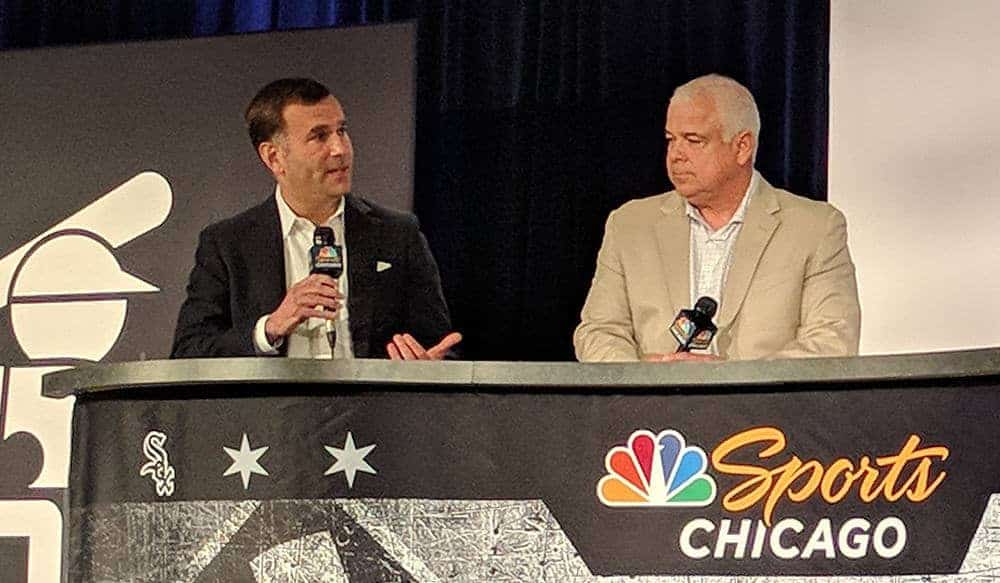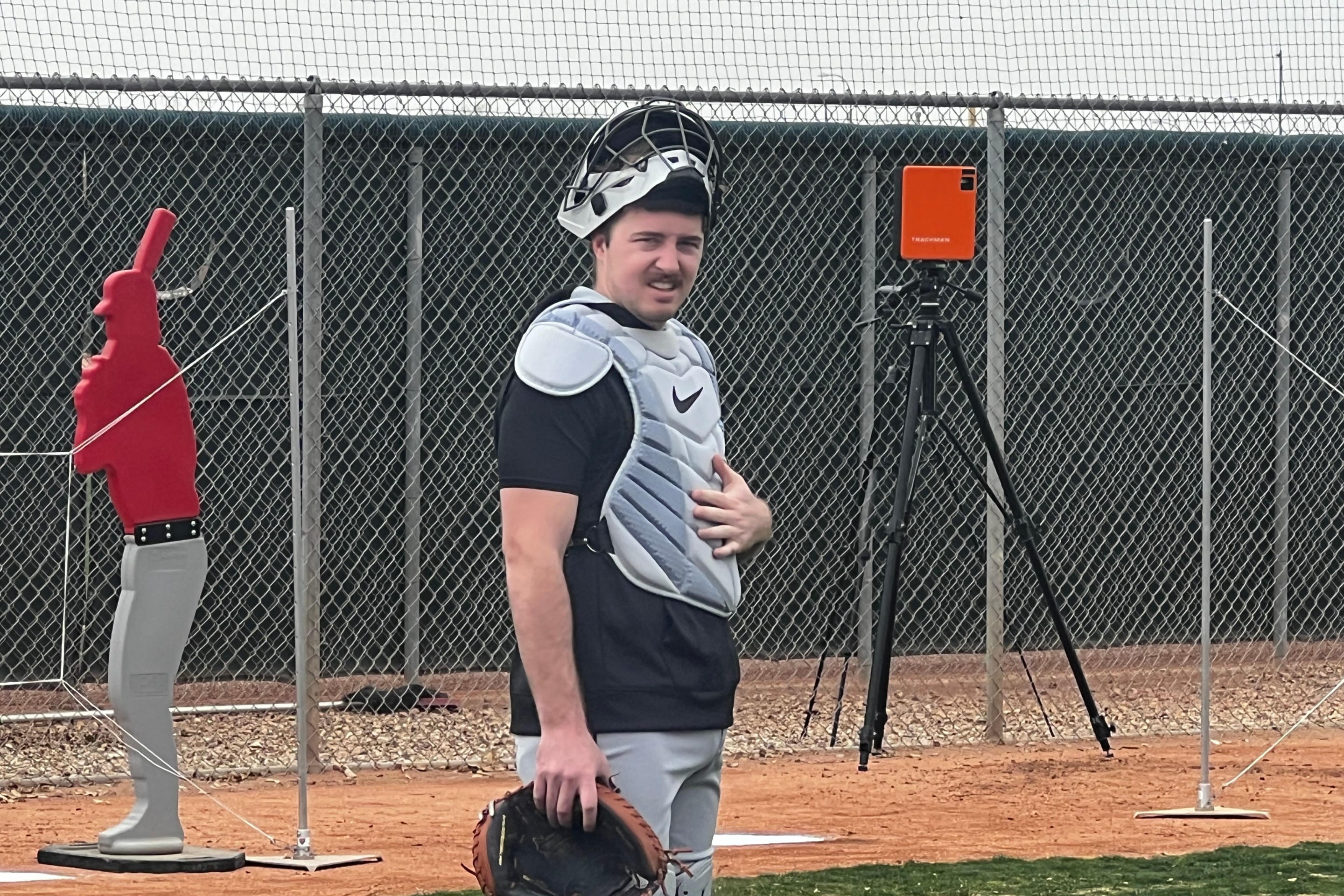Before the White Sox lost their 82nd game of the year to lock in a seventh straight losing season on Thursday, Jon Greenberg posted an editor's column at The Athletic that included a brief aside about a regrettable period in White Sox history.
Let’s go back to [Jeff] Samardzija to close this out. Samardzija gives off the air of a meatball athlete, but anyone who has talked to him at length knows that’s not the case. During the end of his Cubs tenure, he was keenly aware of not only his value, but the importance of free agency in baseball. So he scoffed when the Cubs tried to play the “hometown boy” angle during negotiations and he wound up getting traded in a deal to acquire Addison Russell. Samardzija went from Oakland to the White Sox (boy, does he have stories about that year with the Sox) and then wound up signing a five-year, $90 million deal with San Francisco.
In hindsight, the Jeff Samardzija deal was a warning that the James Shields trade would happen. They were both conceived as poorly as they turned out, with "Shark Cage" caps evidence of how little juice the "hometown boy" angle had for anybody outside the White Sox front office. In fact, it's not out of the running that the Samardzija trade ended up costing the White Sox the better MLB player, because Marcus Semien is putting the finishing touches on a 6-7 WAR season. I wouldn't bet on Fernando Tatis Jr. coming up short of that kind of peak, but a season-ending back injury introduces the possibility.
When the White Sox have tried to win during Rick Hahn's seven seasons as general manager, they've lost. When they've looked likely to lose under Hahn's administration, they've never warped expectations.
Hahn knows more about baseball than any of us, but you -- yes, you -- have the same amount of winning seasons. It's a reprisal of the argument against Robin Ventura's managerial career, where I could have also posted four consecutive losing seasons and presided over multiple clubhouse meltdowns that garnered national attention. I probably would've been locked in a garbage can three times a week, but who's to say Ventura wasn't? Maybe that's one of Samardzija's stories.
Rick Renteria says next year will be different:
“I’m expecting that this is it,” Renteria said, asked if he thinks 2019 will mark the end of this losing era. “We’re trying to win. We talk about it, we’re going through it. I know there’s still some refining to do, but I’ll be honest with you, we’re coming in, we’re finishing this season, we’re talking about coming into next season ready to battle. Period. Exclamation point. That’s what we’re looking to do.”
I noticed Renteria dropping the "honest" tell, which usually shows up when adopts an uncomfortable position. There's nothing to dodge in that particular session, but the day before, Renteria said he expected his entire staff to return:
Now, it's entirely possible that the problem lies with player procurement, not coaching. Well, the White Sox just promoted Nick Hostetler from amateur scouting director after a tenure that could most generously be described as "unfinished," and they replaced him with an assistant who suggested no philosophical shifts. The White Sox saw their second-tier of minor-league depth erode and only have a top-10 farm system because suppressing Luis Robert gooses up the ranking, yet Chris Getz called the year on the farm "solid."
The White Sox have the league's worst combination of strike-zone control and power, as well as a bottom-third defense and the fifth-worst team FIP. These things don't reflect a staff that does a great job.
The White Sox tried a different approach with the rebuild to some encouraging results, but there's no evidence that the process of rebuilding has changed them. They might have built an excellent and affordable core, but the core wasn't the problem during their last rebuild. No, the issues were:
- Young players who never quite got on top of the learning curve, or did after it was too late.
- A farm system that produced few in-house alternatives.
- The 25-man roster rejecting damn near every talent transplant.
The White Sox have more young talent at more positions this time -- second, third, shortstop, left and center field should be covered by the end of next season, as should three spots in the rotation. That's great. These players have traveled on long bus rides with each other, so one would hope they've ironed out all their personality differences in advance and won't choke each other in the clubhouse at Guaranteed Rate Field.
But when it comes to supplementing that core, the front office and coaching staff that oversaw seven consecutive losing seasons is almost entirely intact, and they're bearing the same results in their fields. They still don't walk, they still strike out too much, they still play leaky defense, the steps forward and backward with pitchers cancel out. They still lack top prospects who didn't require a tremendous acquisition cost. Most recently, the only real success stories of Hahn's offseason -- James McCann and Alex Colomé -- are on the risk of losing their places in the "positive" column thanks to dreadful second halves.
There are just too many shared characteristics with previous White Sox failures to write it off as "year three of the rebuild," and that's if you haven't already rejected the premise of the five-year plan (look at those aforementioned Oakland A's, doing more with less in a tougher division). Maybe Yonder Alonso and Jon Jay only were acquired to lure Manny Machado, but they turned out no differently from Kelvin Herrera, who had no such strings attached and was viewed by the front office as a guy who could solve a problem.
The stakes only get higher from here, assuming Hahn regains the will and nerve to add again in a meaningful way. Four years since Samardzija and seven years since their last winning season, I'm still not quite sure how and when the White Sox will acquire a key veteran who doesn't leave the organization shaking his head in awe of all the ways it went wrong.






